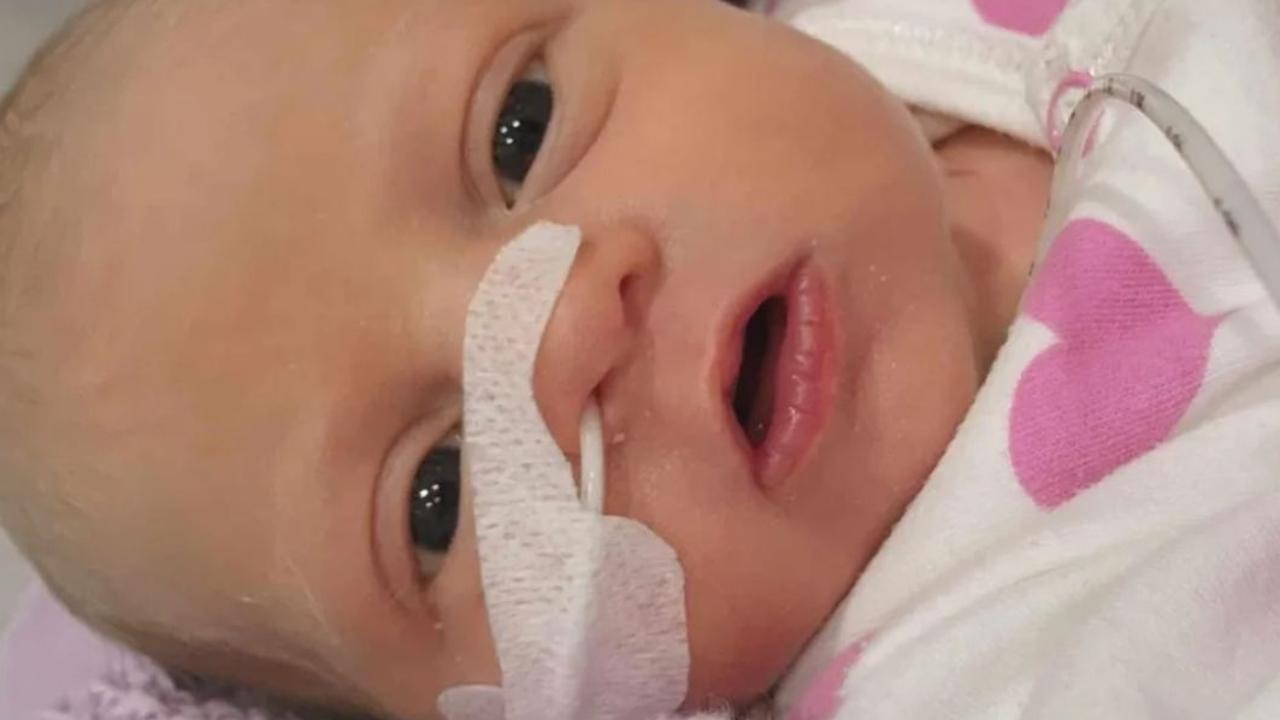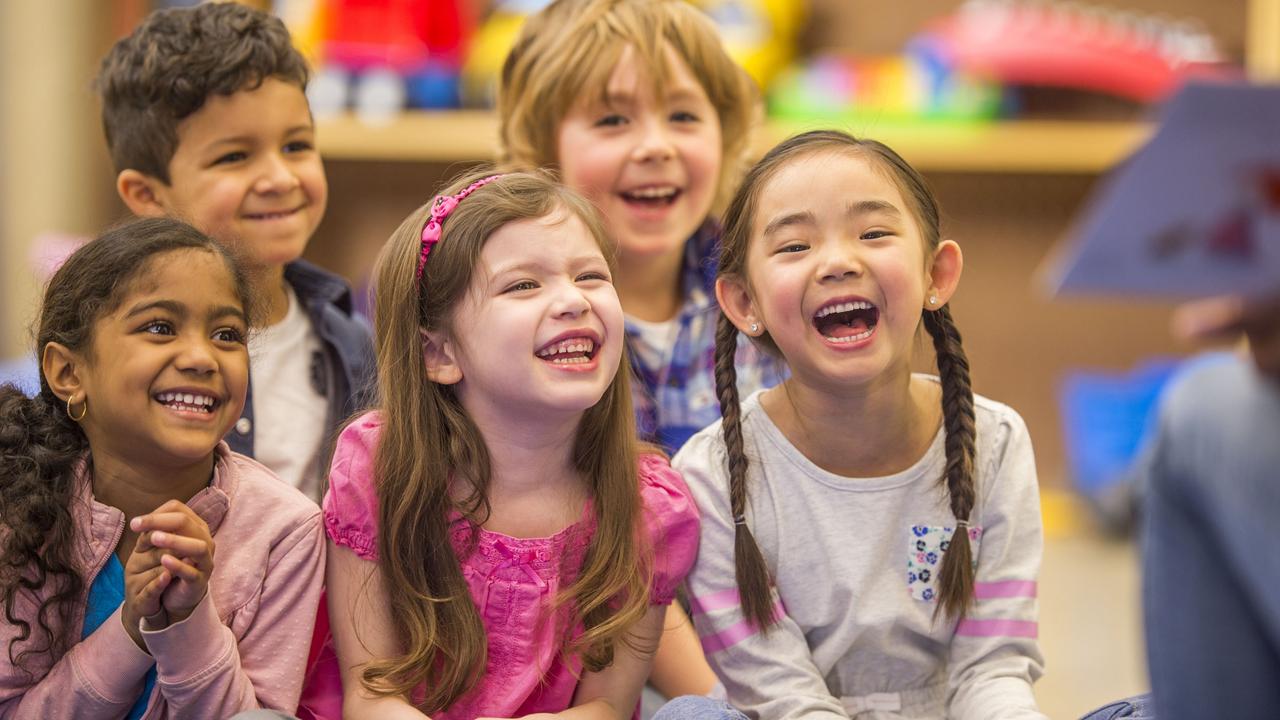Guide Dogs Tasmania training first Tasmanian born purpose-bred future guide or assistance dogs
Tasmanian born and bred Guide Dogs Digby and Dora have a long career ahead of the, but for now they’re taking the next steps in their training. Here’s why they’re unique.
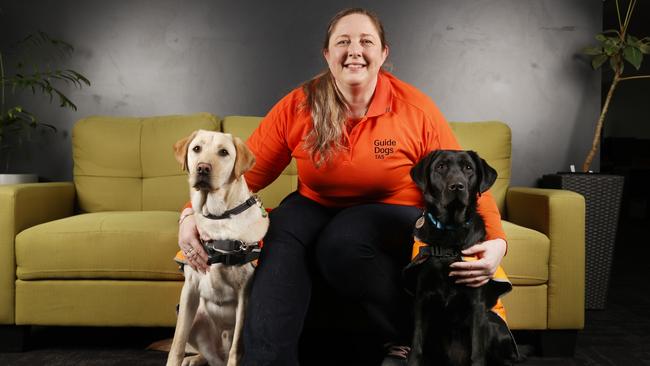
Tasmania
Don't miss out on the headlines from Tasmania. Followed categories will be added to My News.
The first Tasmanian-born future guide, or assistance dogs, have taken the next step in their careers and are returning to Guide Dogs Tasmania for formal training.
Siblings Dora and Digby were born 18 months ago to Tasmanian-trained Freda and are the first guide dog puppies to be born, raised and trained in Tasmania, for Tasmanians.
Guide Dogs Tasmania business manager Kim Ryan said it was an exciting and proud moment to see two of their own puppies moving through the program, with Dora and Digby recently graduating from the puppy development program.
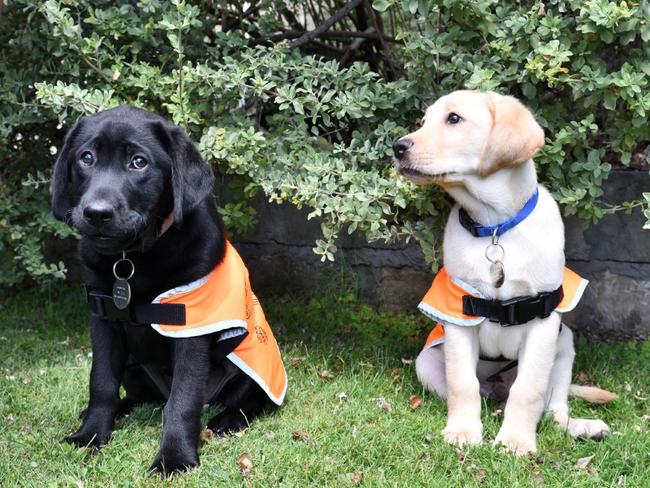
She said there was a continuous need for guide and assistance dogs with great demand for their other programs such as the autism assistance dog program or facility dogs at courts, hospitals or mental health facilities.
“It’s just so wonderful to know that we’ve got the resources coming through and we’re able to meet that demand,” Ms Ryan said.
She said Guide Dogs Tasmania places around six to ten guide dogs a year and demand for their other programs was growing “extremely fast”.
Previously, Guide Dogs Tasmania imported their purpose-bred dogs from the mainland or New Zealand. The organisation is now hoping for a steady supply of Tasmanian-born pups for their programs.
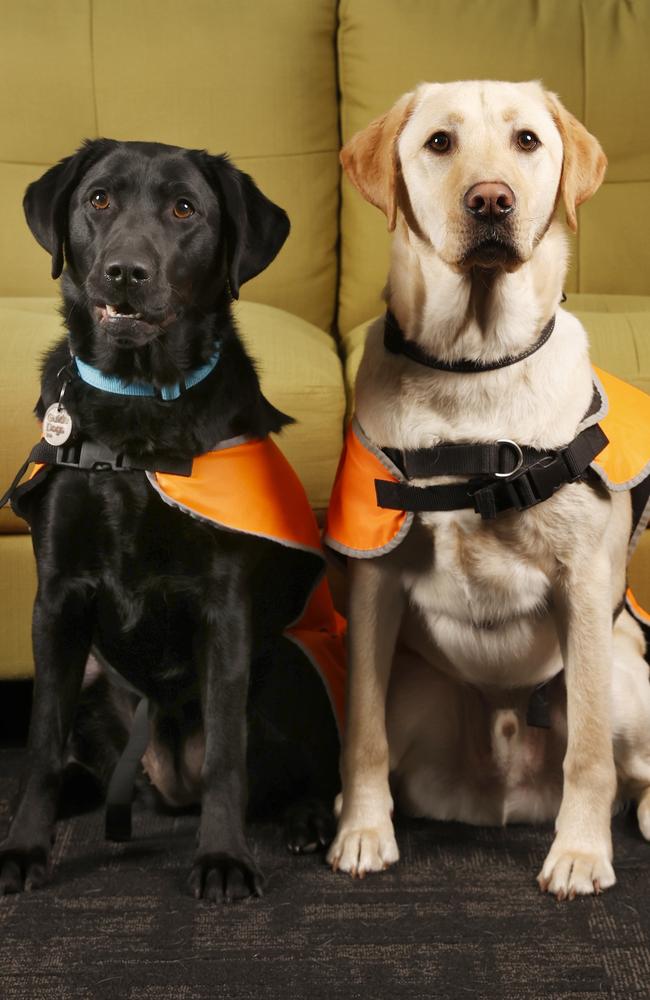
Dora and Digby get to go home every night to their “bed and breakfast” foster carers before being dropped off at “school” every day.
The next stage of Dora and Digby’s journey will involve six months of training and various health and temperament assessments and after 20 walks they will be assessed and entered into formal training for their career path.
After the six month intensive training period where they learn all the skills needed for the job the dogs will undergo another intensive assessment to be paired with their perfect match.
“We want to make it perfect,” Ms Ryan said, adding that a guide or assistance dog makes a profound impact on the life of their human.
“We want it to be successful for the client from day one — they work for about eight years with that client and they’re going to be by their side everyday,” she said.
Ms Ryan said with the growing demand for puppies, there is a growing demand for volunteers and support from the community.
Originally published as Guide Dogs Tasmania training first Tasmanian born purpose-bred future guide or assistance dogs



